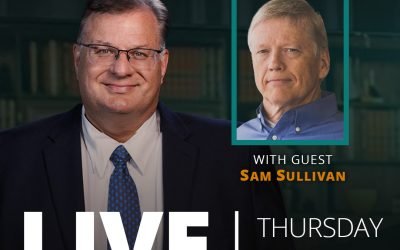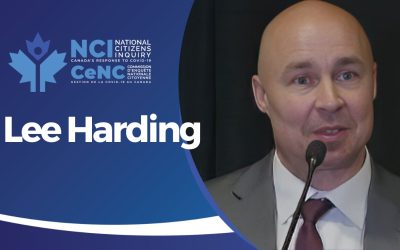Police services are once again hard at work preparing annual budget submissions for the next fiscal year. The cost of policing continues to mount year after year, and the justifications seem to repeat year to year as well.
The budget for Canada’s largest municipal police service, the Toronto Police Service (TPS) now exceeds 1.2 billion dollars, a 30 million dollar increase in 2019 alone.1 Nearly a quarter of the City’s tax revenues (23.29%) went towards policing in 2019.2
Lets see what this 1.2 billion dollar budget gets you as a taxpayer in Toronto.
The city’s 2020 budget notes list the following challenges confronting the Toronto Police Service (TPS) as reasons for its budget submissions to the City:3
- Major crime is up: the Service uses major crime indicators as a measure of how safe the city is. This impacts quality of life, entertainment, economic development, business investment, and tourism. From 2015 to 2018 all major crimes increased with the most notable increases seen in homicide (62.7%), auto theft (45.7%) and theft over $5,000. In 2019, increases in major crime continue trend in assault, break and enter, auto theft, and theft over $5,000. All of these increases are driving workload demands through increased calls for service.
- More shooting incidents: shooting incidents increased by 48.6% from 2015 to 2018. As a result, victims of shootings have increased by 46.6% over the same period. Both shootings and shooting victims continue to show an increase in 2019 over 2018, with shooting incidents growing by 16.4% and shooting victims by 22.7%. Not only are these calls a public safety concern, but they put pressures on our resources.
- Complexity of calls for service are driving the time spent on calls up with a 2.5% increase in time spent on calls on average in 2018 compared to 2015. Investigations are also more complex and time consuming.
- Legislative impacts: costs and resource pressures associated with legislation impacting the Service relating to WSIB, Chronic Mental Stress Policy, Cannabis Legalization, Next Generation 9-1-1, R v. Jordan Decision and disclosure of “911 tapes” decision.
- Increasing calls for service: calls for service went up overall by 7.5% from 2015 to 2018, with emergency calls for service up by over 10% and non-emergency calls up 4%. While calls have been increasing, the number of officers declined by almost 500 over that same period, making a substantial increase in the number of calls per officer and presenting challenges in meeting response time standards and in ensuring a balance of reactive and proactive policing.
- Crisis calls are up (opioids and mental health): significant increases seen in calls involving persons in crisis, overdoses, and threats of suicide. These calls require more time on call, given their complex nature.
These are in fact the typical claims, tested and tried to resist political scrutiny, that continue to fleece the public of its tax dollars and siphon productivity and potential from other social and public services.
The fact that major crimes increased between 2015 and 2018, and shootings are up by 48.6%, is a failure of police leaders to anticipate, mitigate, and respond to emerging and predictable risks. It should not be a justification for additional resources and raises in salaries and bonuses. This is in fact a public admission of the failure of command.
According to Ontario Public Sector Salary Disclosure 2018: the top senior officers at the TPS (six command officers, six staff superintendents, and twenty Superintendents alone) earned $6,256,787 in 2018; several senior officers receiving more than $16,000 in benefits in addition to their salaries.4 This does not include senior officers holding the rank of inspector or acting inspector. Benefits alone amount to more than the annual income of thousands of the City’s residents.
When police chiefs and senior officers, who enjoy well above average salaries, bonuses, cars, gas, senior officer’s days off, and generous holidays, fail to meet their obligations of effectively responding to crimes, improving efficiency, and enhancing the quality of lives of their citizens. They should face the same consequences as the leaders of publicly held corporations when they fail to meet or improve the efficiency and returns expected by their shareholders. They should be held accountable.
The fact that calls for services take longer, that processes have become more time consuming and complex is a failure of police leaders. This is an admission and indictment of their failure to use technology effectively, of having wasted tens of millions of dollars of taxpayers contributions squandered on computerization without any reported advances over the processes they were intended to replace. Further, great looking reports, representing thousands of hours of police manpower siphoned for internal reviews and consultations have done nothing to mitigate the increases in major crimes, homicides, and shootings – not during the course of one year, but over many years.
It is a failure of leadership to live up to their obligations to their communities, and to their membership. It is a shameful indictment of make-work reports and reviews that have mounted to no perceivable improvements in service delivery, crime reduction, or efficiencies; while in fact detracting manpower, resources, and funds from front-line policing and at best only contributing to more reviews and reports to be shelved in police archives.
Police leaders have shamelessly extorted increasingly larger portions of taxpayer’s hard earned money for far too long. Chiefs demanded more resources when crime was down; did nothing to create resilience for times when crimes would go up, and then again demand more money and resources when crimes start to spike. Police leaders and senior officers have never taken responsibility or have been held accountable; instead too readily shunting the blame to other agencies, other factors, and segments of society.
In the three years prior to 2014, major crime incidents were down nearly 20 percent, and the crime severity index listed Toronto as one of the safest cities in the country.5 But even then the per capita cost of policing in Toronto increased by 14 percent, to $387 per resident over the previous four years – nearly twice the rate of inflation over that time.6
Where is the capacity building or resilience for tougher times? Where are the investments in programs that should have been put in place to respond to today’s spike in crimes? Where are the results of the internal reviews, reports and rhetoric?
What the police command has provided is the status quo response time and time again – more enforcement, demand for freedom to do street checks, stiffer sentences, and more overtime. Hot spot analysis, and enforcement, further criminalization of already marginalized communities, and risking even further loss of trust and cooperation.
According to the Toronto Police Service’s 2019 Operating Budget Request the Service had an average deployed strength of 4,730 in 2019.7
It reports approximately 27,000 arrests, approximately 2 million calls for service taken by 9-1-1, and about 600,000 calls attended by front-line officers.
Assuming that each of the 4,730 members worked 150 days in 2019, a conservative estimate, these numbers amount to the following:
- 5.7 arrests per officer per year or 0.04 arrests per day of the 150 days worked
- 126.8 calls attended per officer per year or 0.85 calls per day of the 150 days worked
It’s hard to fathom that millions of tax dollars have been spent on computerization and analytics, and yet the performance measures on which increasing resources are sought lack justification and at worse mask failure.
Police Services Boards too have become bureaucratic pawns of the system, with few members having any real understanding of front-line policing. One would be hard pressed to find a Board member who has actually taken the time to attend police stations, observed how police stations actually operate, how cases are processed, or accompanied police officers on a ride along; beyond perhaps a few who have conducted the token ride along for the sake of being able to claim that they have.
The issues presented here are not isolated or unique to the TPS; they are in fact normative of the reality with police services across the country. Local governments, civic leaders, and taxpayers should do more to hold their police leaders and police services boards, entrusted with the largest portion of municipal taxes, more accountable for their performance -enough of the Three-card Monty that has been perpetuated on the public for decades.
[show_more more= ”SeeEndnotes” less=”Close Endnotes”]
- Toronto Police Service Board. “Toronto Police Services Board Report; Toronto Police Service – 2019 Operating Budget Request Recommendations”(2019). Accessed Jan 20, 2020 https://www.torontopolice.on.ca/budget/docs/2019_operating_budget_request.pdf
- City of Toronto. “How Your 2019 Tax Dollars Worked” .Accessed Jan 20, 2020 https://www.toronto.ca/city-government/budget-finances/city-budget/basic-basics/how-your-tax-dollars-work/
- City of Toronto.“2020 Budget Notes Toronto Police”. Accessed Jan. 20, 2020 Service.https://www.toronto.ca/legdocs/mmis/2020/bu/bgrd/backgroundfile-141641.pdf
- Government of Ontario. “Public sector salary disclosure” (2019) Accessed Jan. 20, 2020 https://www.ontario.ca/page/public-sector-salary-disclosure
- The Globe and Mail. “Falling crime, rising budgets: Is Toronto over-policed?” Accessed Jan. 20, 2020 https://www.theglobeandmail.com/news/toronto/is-toronto-over-policed/article19968776/
- The Globe and Mail. “Falling crime, rising budgets: Is Toronto over-policed?” Accessed Jan. 20, 2020 https://www.theglobeandmail.com/news/toronto/is-toronto-over-policed/article19968776/
7. Toronto Police Service. “Toronto Police Service, 2019 Operating Budget Request” (January 24, 2019) Accessed Jan. 20, 2020 https://www.torontopolice.on.ca/budget/docs/tps_2019_budget_request_presentation.pdf
[/show_more]
Anil Anand is a Research Associate with the Frontier Centre for Public Policy. Anil served as a police officer for 29 years; during his career some of his assignments included divisional officer, undercover narcotics officer, and intelligence officer. He has worked in Professional Standards, Business Intelligence, Corporate Communications, the Ipperwash Inquiry (judicial public inquiry), and Interpol.



